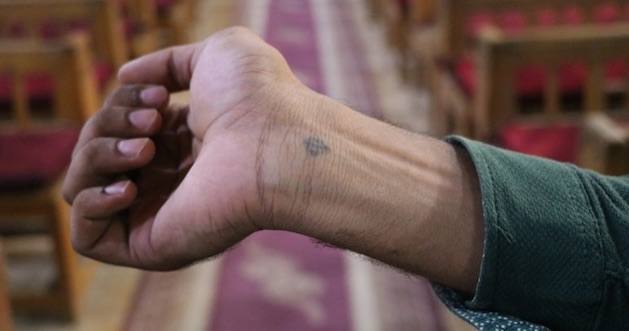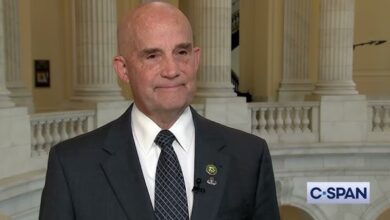Muslim militants kill man for cross tattoo

Militants belonging to the ‘State of Sinai’ group in Egypt have promised to “kill more Copts” after murdering a 27-year-old Coptic man because of the tattoo of a cross on his wrist.
Bassem Herz Attalhah, also known as Haythem Shehata, was on his way home from work in El-Arish, capital of North Sinai governorate, on Saturday evening (13 January), with his brother Osama and neighbour and friend Mohamed, when they were stopped by three armed men, aged between 23 and 25.
“We thought they were policemen because they weren’t masked… They were wearing black jackets,” Osama, 38, told World Watch Monitor. “They approached us and asked Bassem to show them the wrist of his right hand, and when they saw the tattoo of the cross, they asked him: ‘Are you Christian?’ Bassem answered ‘Yes, I am Christian’, and repeated that again in a loud voice.”

The men then asked Mohamed his name and made him show his wrist. When they saw he had no tattoo, he was allowed to leave.
Then they turned to Osama.
Osama is a common name in Egypt, also among Muslims, and the men didn’t know he was Bassem’s brother.
“Bassem told them that I had children,” Osama recalls. “They asked me to show them the wrist of my right hand and, when they didn’t see any cross, they thought that I was Muslim.” The men didn’t see the cross that Osama has tattooed on the top of his hand because it was hidden under his sleeve.
“They fired two shots on the ground close to my legs and asked me to leave,” he recalled. “And then they shot Bassem in the head. I could not believe what happened to my brother. He fell on the ground in front of me and I was unable to do anything.”
On his way to find help, Osama says his legs gave way from the shock. Their mother, upon hearing the news, fainted and had to be taken to hospital.
“We lost a person dear to our hearts. My brother Bassem was a very good and kind man. He had a strong relationship with God. He was always reading in the Bible, praying and going to the church. He was loved by all people,” Osama said.
String of killings
When Bassem’s close friend Milad Wasfi heard he had been killed, he couldn’t believe it and called his friend’s phone. His call was answered, but not by his friend.
“The terrorists answered me and said they belong to State of Sinai and promised to kill more Copts before they put down the phone,” he told World Watch Monitor.
Scores of Coptic Christian families left for Ismailia and Suez, about 200km away, after a string of killings in El-Arish last year – including one incident where a woman witnessed her husband and son killed by a gunman who then ticked them off an IS hit-list. In March 2017 it was estimated that 70 per cent of the 160 Coptic Christian families living in the city had left.
Bassem, Osama and their parents had been among those who fled the city. Struggling to find work in Ismailia, however, the two brothers left for Cairo, and when things did not work out for them there either, they decided to return to El-Arish in September.
The situation seemed to have stabilised and their father joined them, selling carpets, while Bassem and Osama set up a shop for mobile phones. One month later they brought the rest of the family back from Ismailia.
‘Very difficult’
Bassem’s friend Milad, who is still living in Ismailia, fears for his own future and for the other displaced Christians families of El-Arish.
“The hope and the dream of [one day] returning to our homes in El-Arish has become very difficult, especially after this incident,” he said.
In February last year President Abdel Fattah El-Sisi ordered his government to “take all necessary measures” to help resettle Christians fleeing North Sinai. But, as World Watch Monitor reported in July, as the attacks against Copts continued, they have found it harder and harder to believe their government could protect them.
Bassem was buried this morning (15 January) in his home village of Dweik, in Tema district, Sohag governorate.
“Bassem was a very good man,” Milad says. “Honest, quiet, modest, a light-hearted person and close friend to me. From early childhood he loved the Church and he was a man of prayer and worship. He didn’t renounce the faith and didn’t deny his Lord Jesus Christ. He didn’t fear death. Actually, he didn’t die but has won the real life in Heaven, enjoying being with Jesus. We pray that God will comfort us [and] thank God for saving the life of Osama, to care for his five children and his parents.”








